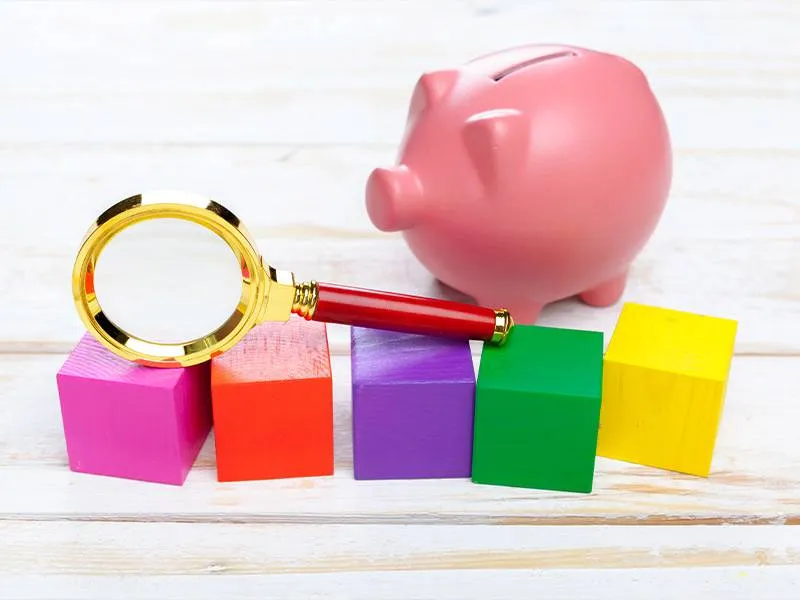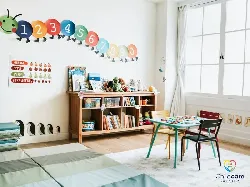Why Preschool Matters

As parents, we all want the best possible start in life for our children. We strive to provide them with the tools and opportunities they need to grow into happy, healthy, and successful individuals. When it comes to setting our children up for success, enrolling them in a quality preschool program plays a crucial role. But what exactly is preschool, and why does it hold such significance in a child's early years?
The significance of enrolling your child in preschool goes beyond early learning. It provides an essential foundation for their future academic and social success. Through preschool, children are exposed to early literacy and numeracy concepts, igniting a love for learning and preparing them for a smooth transition to formal schooling.
What's the difference between childcare and preschool?
Childcare and preschool are two terms that are often used interchangeably, but they are not the same thing. Childcare is a broad term that refers to any kind of care provided for children, usually while their parents are at work.
This can include in-home care, nanny services, or center-based care. Preschool, on the other hand, is a more specialized type of childcare that focuses on preparing children for school. Preschool programs are designed for children between the ages of three and five and provide a structured environment where children can learn and play.
Preschool programs typically have a curriculum that focuses on developing early literacy, math, and social skills, with trained teachers who use educational materials and activities to support children's learning.
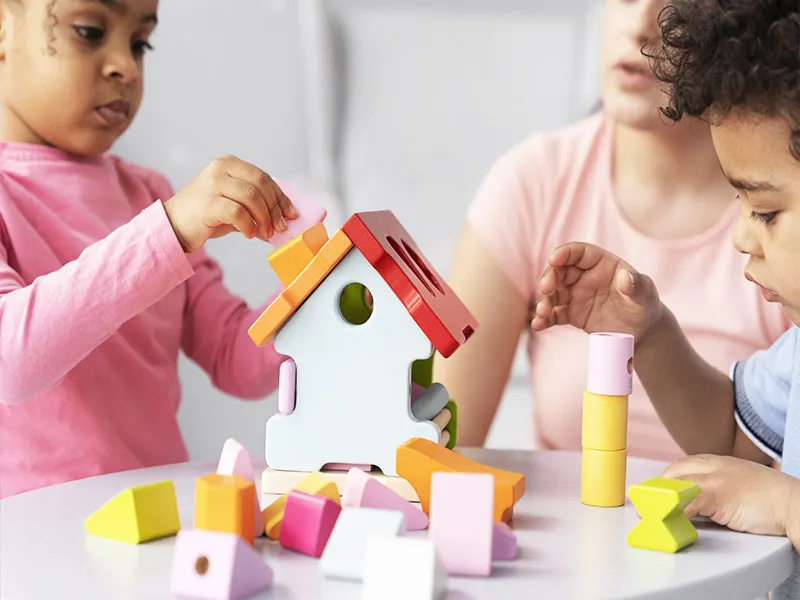
For further insights into the distinctions between different types of child care and education, including whether daycare is considered a form of schooling, explore our detailed discussion: Is Daycare Considered School?.
What are examples of core values for a daycare?
A quality daycare should have a set of core values that guide its programs and policies. Some examples of core values for a daycare might include:
- Safety: The safety of the children should always be the top priority.
- Education: Daycares should provide age-appropriate educational programs that promote learning and development.
- Respect: Children should be treated with respect and encouraged to respect others.
- Diversity: Daycares should celebrate diversity and provide a welcoming environment for children of all backgrounds.
- Fun: Children should be encouraged to have fun and enjoy their time at the daycare.

What are the core values of a preschool?
Preschools have their own set of core values that guide their programs and curriculum. Some examples of core values for a preschool might include:
- Learning: Preschools should provide a curriculum that promotes learning and prepares children for kindergarten.
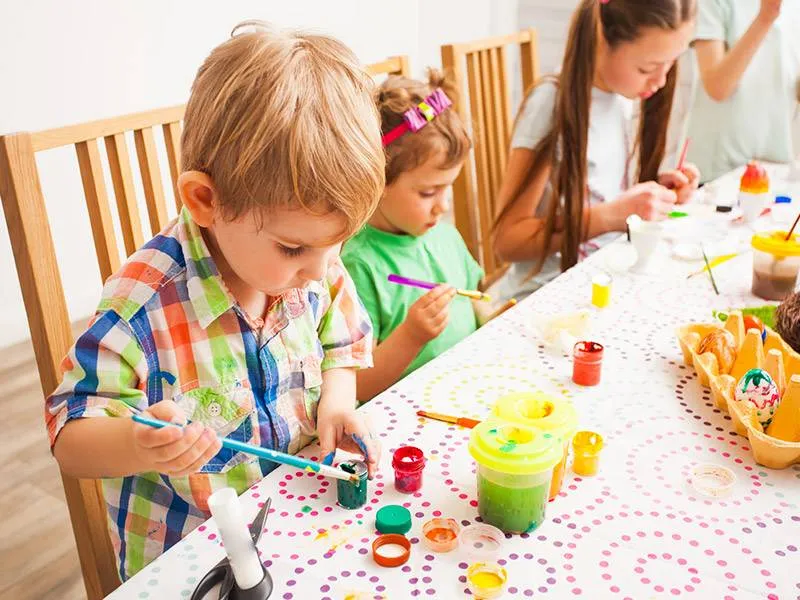
- Creativity: Preschools should encourage children to be creative and explore their interests.
- Independence: Preschools should promote independence and teach children to be self-sufficient.
- Respect: Children should be taught to respect others and their environment.
- Play: Preschools should provide opportunities for children to play and learn through play.
How important is preschool?
Preschool is incredibly important for a child's development. Research shows that children who attend high-quality preschool programs are more likely to succeed in school and in life. Some of the benefits of preschool include:
- Cognitive development: Preschool programs provide children with a structured environment where they can learn and develop cognitive skills like language, problem-solving, and critical thinking.
- Socialization: Preschool provides children with the opportunity to socialize with their peers and learn important social skills like sharing, taking turns, and empathy.
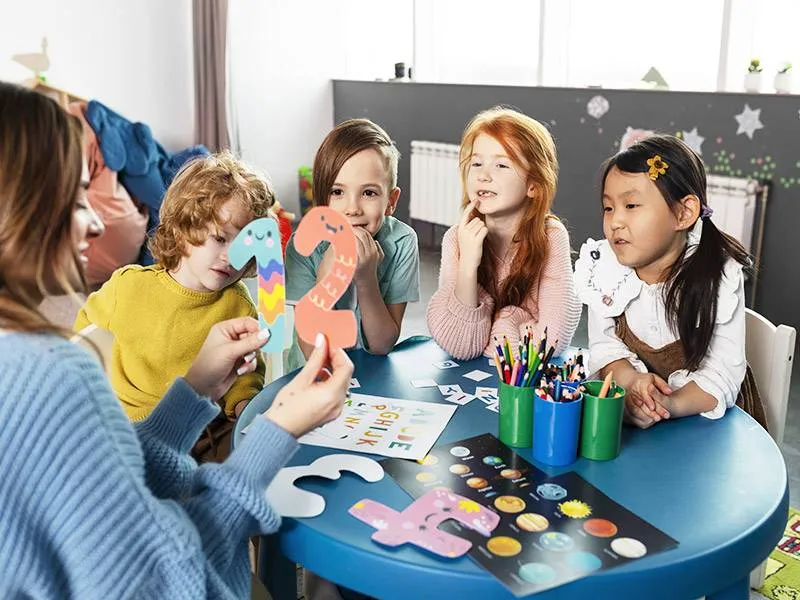
- Emotional development: Preschool can help children develop emotional intelligence and learn how to regulate their emotions.
- School readiness: Preschool prepares children for kindergarten and helps them develop the skills they need to succeed in school.
- Long-term success: Children who attend high-quality preschool programs are more likely to graduate from high school, attend college, and have successful careers.
The significance of preschool in shaping a child's early development cannot be overstated. From fostering cognitive skills to laying the groundwork for emotional intelligence, the role of preschool is multifaceted and far-reaching. It not only primes children for the academic demands of school but also plays a pivotal role in their long-term achievements and adaptability in life's various arenas.
To delve deeper into this subject and understand the full spectrum of advantages that preschool offers, we invite you to read our feature, 'The Various Benefits of Attending Preschool for Toddlers'. This comprehensive guide will provide you with a closer look at how these early educational experiences contribute to a child's growth and future success.
The Value of Play-Based Preschools
One of the most important aspects of preschool is the value of play-based learning. Play-based preschools allow children to learn through exploration, imagination, and creativity.

Play-based learning is child-centered, meaning that the teacher follows the child's lead and allows them to explore their interests and ideas. Play-based preschools also foster a love of learning and can help children develop a lifelong curiosity.One of the most important components of a high-quality preschool program is play-based learning. Play-based preschools provide children with opportunities to learn and develop through play.
Some of the benefits of play-based preschools include:
- Engagement: Children are more engaged in learning when they are having fun and enjoying themselves.
- Creativity: Play-based learning encourages creativity and imagination.
- Socialization: Play-based learning provides
- Problem-solving: Play-based learning helps children develop problem-solving skills and learn how to think critically.

What is most important for preschoolers to learn?
The most important things for preschoolers to learn are social and emotional skills. These skills include empathy, communication, self-regulation, and problem-solving. These skills are critical for success in school and in life.
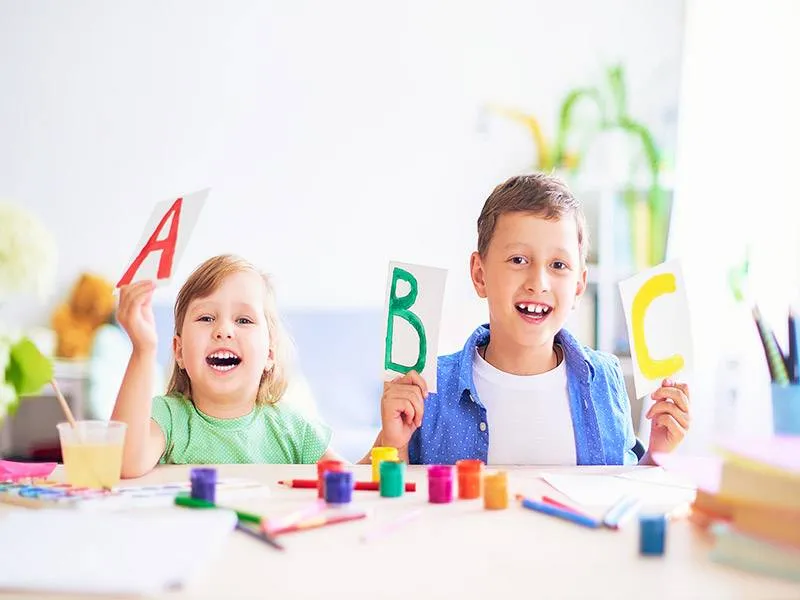
Preschoolers should also learn basic academic skills, such as counting, recognizing letters, and early literacy skills. These skills help prepare children for kindergarten and beyond.
However, it's important to note that social and emotional skills are just as important as academic skills, and should not be overlooked in early childhood education. A well-rounded preschool education should focus on both social-emotional and academic development.
|
Skills for Preschoolers |
Description |
|
Social-emotional skills |
These skills include empathy, communication, self-regulation, and problem-solving. They are critical for success in school and in life. |
|
Early literacy skills |
These skills include recognizing letters and sounds, basic reading and writing skills, and a love of reading. They help prepare children for success in kindergarten and beyond. |
|
Math and science skills |
These skills include counting, recognizing shapes and patterns, and basic scientific concepts such as cause and effect. They help children develop a foundation for math and science learning. |
|
Physical development |
Physical development includes gross and fine motor skills, such as running, jumping, and using scissors. These skills are important for overall development and future success in sports and other physical activities. |
|
Creative skills |
Creative skills include art, music, and drama. These skills help children express themselves and develop a sense of creativity and imagination. |
It's important to note that these skills are all interconnected, and a well-rounded preschool education should focus on all of them.
When Do Kids Start Preschool?
In Canada, the age at which kids start preschool varies depending on the province and the type of program. However, in general, most preschool programs in Canada are designed for children who are at least three years old.
In some provinces, such as Ontario and British Columbia, children can start attending preschool as early as two years old. However, these programs are typically play-based and focus on socialization and early learning, rather than formal academic instruction. In other provinces, such as Quebec, children typically start preschool at age four, when they are eligible to enroll in the province's public preschool program, known as "maternelle". This program is free and available to all children in the province.
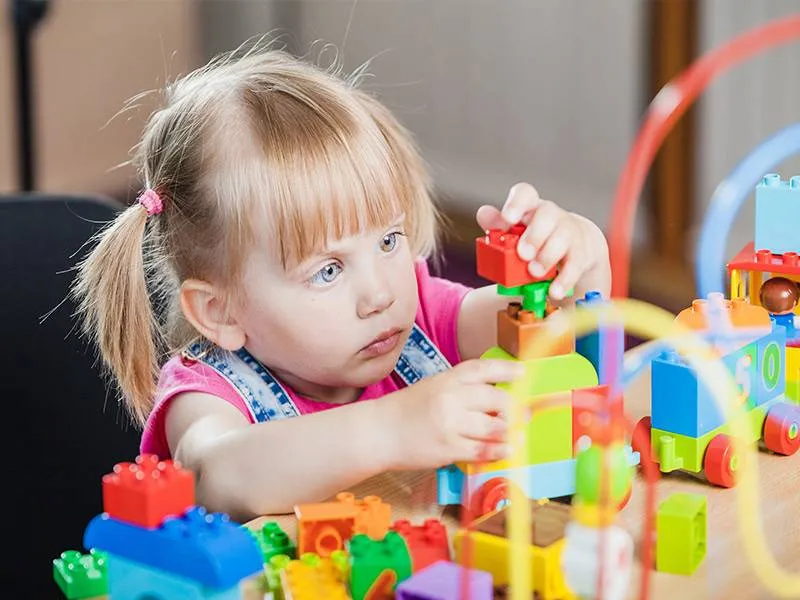
Overall, the age at which children start preschool in Canada can vary depending on a number of factors, including the child's age and developmental readiness, the family's preferences and needs, and the availability of pre-k programs in the community.It's important for parents to research and consider their options carefully, and choose a program that is the best fit for their child and family.
Are you seeking an extensive resource on the optimal time for preschool enrollment, information on settings, and expert advice from preschool teachers? Look no further than the "When Do Kids Start Preschool? A Comprehensive Guide" article available at kinderpage.ca/blogs This article offers valuable insights to help parents make informed decisions about their child's preschool education.
How Much Is the Cost of preschool in Toronto?
The cost of preschool in Toronto can vary greatly depending on the specific program and its location. Generally, preschools have a range of tuition options and fees depending on the type of services they offer. Most programs charge an annual tuition fee that ranges from $1,100 to $13,000 per year for full-time programs. Part-time care is usually less expensive and can range from $400 to $2,000 per year. Some programs also include additional fees for supplies, uniforms, and other services.
The cost of childcare also depends on a number of factors, such as the location, type of care, and the ages of your children. On average, full-time infant care can cost anywhere from $1,000 to $2,500 per month. For a toddler in Toronto daycare, the average cost may range from $850 to $2,200 per month. On average, parents living in Toronto should consider about $700 to $2.200 per month just for a child. It is important to research the different daycare facilities in the city of Toronto prior to making a decision as there are many factors that will impact the overall cost.
For more information about child care in Canada especially about types, costs, and tips for newcomers follow the "childcare cost & expenses" .The price of preschool in Toronto will ultimately depend on the individual program's offerings and its location within the city. It is important to research all available options to ensure you are getting the best value for your money when enrolling your child in a pre-k program in Toronto.
What Are the Different Types of Preschools?
Preschools offer an important foundation for children’s development. The types of preschools vary from region to region but typically include private, public, and religious settings.

Private preschools are generally tailored to the individual needs of a child and may be affiliated with a particular school district. Public preschools are typically funded through local or state governments and may provide free tuition or reduced-cost tuition for students who qualify. Religious preschools often focus on teaching the beliefs and values of the religion, while also providing a strong academic curriculum. Each type of preschool has its own advantages and disadvantages, so it is important to research what options are available in your area before making a decision.
In addition to setting, there are so many different types of preschool programs and philosophies out there. The following are nine of the most famous and popular preschool philosophy theories. For reading more please follow "What Are the Different Types of Preschools?". this blog post gives you a bright overview that helps you make a decision to choose the best quality early education for your child.
- Montessori
- Waldorf
- Reggio Emilia
- HighScope
- Bank Street
- Parent Co-Ops
- Religious
- Emergent
- Ascend
How do we define and measure quality in early education?
Defining and measuring quality in early education is an important task for policymakers, educators, and parents. Quality early education can have a significant impact on a child's academic and social-emotional development, and it's important to ensure that programs are of high quality.There are several different frameworks for defining and measuring quality in early education. One common framework is the "Program Quality Assessment" (PQA) model , which assesses quality based on several key factors:
- Classroom environment: This includes factors such as safety, cleanliness, and the overall organization of the classroom.
- Interactions between teachers and children: This includes positive reinforcement, active listening, and other forms of positive social-emotional interaction.
- Curriculum and instruction: This includes the use of developmentally appropriate materials, teaching strategies, and assessment practices.

- Family engagement: This includes the degree to which parents and caregivers are involved in the program and have a positive relationship with the teachers.
Other frameworks for measuring quality in early education may include additional factors, such as teacher qualifications, program administration and management, and community involvement.

Quality in early education is vital for a child's future success, providing the necessary skills and knowledge for academic, social, and emotional growth.
High-quality programs increase the likelihood of graduating from high school, pursuing higher education, and leading successful lives. Investing in quality early education reduces the need for remedial services and helps to narrow achievement gaps. Ultimately, it's an investment in the future of our children and society.
Research has also shown that high-quality early education can have positive long-term effects on children's physical health, well-being, and economic outcomes in adulthood. It can also lead to greater economic benefits for society, such as increased productivity and decreased social welfare costs.
Why preschool should not be mandatory?
The debate over whether preschool should be mandatory is a complex issue, with arguments on both sides. Here are some reasons why some people argue that preschool should not be mandatory:
- Parental choice: Parents should have the right to choose whether or not their child attends preschool. Some families prefer to have a parent or caregiver stay at home with the child, while others may prefer to use informal care arrangements or home-based programs.
- Financial constraints: Some families may not be able to afford the cost of preschool, especially if it is mandatory. This could create an unequal playing field, where only families who can afford to pay for preschool are able to send their children.
- Developmental readiness: Not all children may be developmentally ready for preschool. Some children may benefit more from a play-based, home-based learning environment until they are ready for the structure of a formal pre-k program.
- Cultural differences: Some families may have different cultural values and beliefs about the role of formal education at an early age. For these families, it may be more appropriate to provide learning opportunities in the home or community setting.
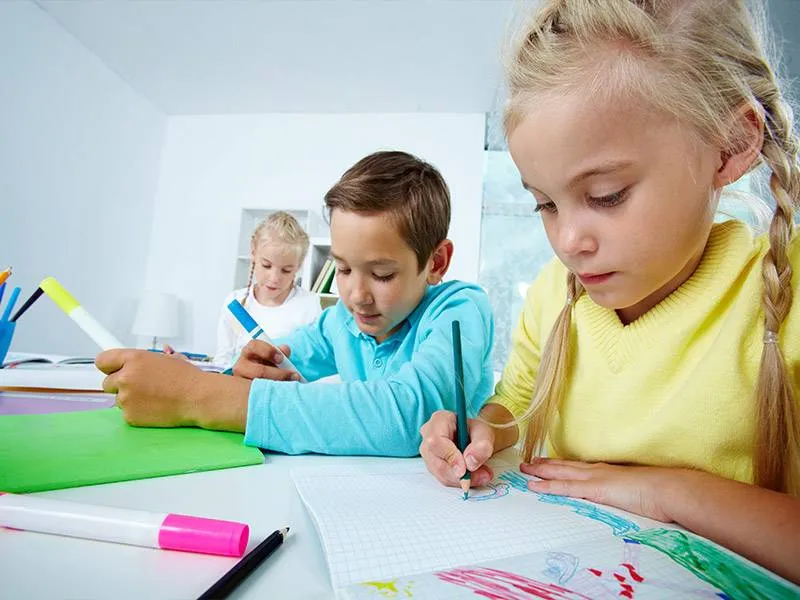
5. Quality concerns: If preschool is made mandatory, there is a risk that some low-quality programs may be created simply to meet demand, which could lead to negative outcomes for children.
It's important to note that these arguments do not mean that pre-k is not valuable or important. Research has consistently shown that high-quality preschool can have significant benefits for children's academic, social-emotional, and cognitive development. However, the decision of whether or not kindergarten should be mandatory is a complex issue that requires careful consideration of many factors.
Prepares children for early education
Starting early education is a significant milestone for children, and it's important to prepare them to have a successful transition. Here are some ways to help prepare children for starting early education:
- Develop a routine: Start establishing a regular routine for your child before they start early education. This could include waking up and going to bed at the same time each day, establishing set times for meals, and scheduling time for play and learning.
- Foster independence: Encourage your child to do things on their own, such as dressing themselves, using the bathroom independently, and picking up their toys. This helps build their confidence and self-esteem, which are important for success in early education.

- Read books and tell stories: Reading books and telling stories helps develop children's literacy skills, which are essential for success in early education. It also helps develop their imagination and creativity.
- Encourage socialization: Early education involves a lot of social interaction, so it's important to help your child develop their social skills. Encourage your child to play with other children, participate in group activities, and practice sharing and taking turns.
- Build pre-academic skills: Help your child develop pre-academic skills, such as recognizing letters and numbers, counting, and sorting. This will help them feel more confident and prepared when they start early education.
- Visit the school: Take your child to visit the school or classroom they will be attending. This helps them become familiar with the preschool environment and feel more comfortable on their first day.
- Stay positive: Starting early education can be a big transition for both children and parents. Stay positive and encourage your child to be excited about their new adventure. Celebrate their successes and be there to support them through any challenges.
Conclusion: Attend preschool is important for your child
Enrolling your child in a preschool program is one of the best investments that you can make as a parent. It not only provides them with an excellent foundation for their future academic success but also encourages social and emotional development. With the right preschool, your child can gain invaluable skills to help them thrive both inside and outside of the classroom. As a result, parents can be confident knowing that their child is getting the best start in life possible!




